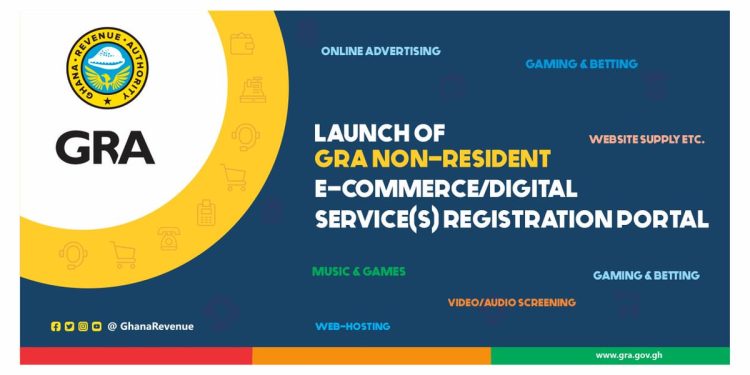The Ghana Revenue Authority (GRA) has launched a non-resident E-commerce and Digital Service Registration Portal, which it says will help it collect about GH¢1.7 billion in revenue from online businesses like Netflix, Jumia, Alibaba, and Amazon among others.
The operation of the portal is expected to commence from 1st April 2022.
The launch of the revenue mobilization portal comes on the back of complaints from Finance Minister Ken Ofori-Atta during the presentation of the 2022 budget, of the revenue mobilization hurdles Ghana has to surmount in its bid to become a country beyond aid.
According to Mr. Ofori-Atta, less than 10 percent that is about 2.4 million people out of Ghana’s 30.8 million population pay direct taxes, a situation he said was “a poor reflection” on the country when compared to other middle-income countries.
Speaking at the launch of the new portal in Accra, GRA’s Commissioner General, Dr. Ammishaddai Owusu-Amoah said the new initiative will not only help expand the tax net but would increase Ghana’s tax-to-GDP ratio while helping the GRA meet its GHC 80.3 tax revenue target.

“Tax payers and their software developers will be engaged and also be provided with the application programming interface (API) between now and the end of the month to ensure they are able to link their system with ours. Effective 1st April, 2022, we will ensure that the portal is launched and we should be able to start applying the VAT from 1st April 2022. And this will cover all institutions no matter where they are based, and is expected to generate online revenue for Ghana.”
Dr. Ammishaddai Owusu-Amoah added that the GRA was ready to facilitate the adoption of the new platform by the non-resident companies and entities but cautioned that those who failed to comply will not be able to repatriate their profits from Ghana.
“In our system, we have built a compliance tool that will ensure that whether it is Google, Amazon or Netflix, you would have to comply. Otherwise your monies will not move from Ghana to your base. To realize the full potential especially from the non-residential to the digital economy, the portal has been developed to ensure that the non-resident persons engaged in cross-border business will be able to register, file and pay the applicable taxes just like their local counterparts,” he added.
Source: citibusinessnews.com





